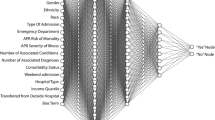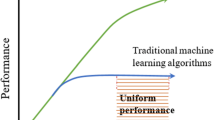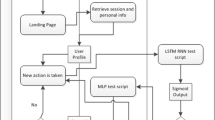Abstract
This paper presents a novel healthcare services framework that leverages versatile distributed computing and mobile cloud computing to enhance the delivery of medical care data. The framework is designed to integrate with diverse cloud settings and distributed computing resources, utilizing a Virtual-Dedicated-Server with 5 VCPU and 32 GB storage of RAM to develop a prototype specifically tailored for stroke patients with cardioembolic and cryptogenic subtypes, using Android-based mobile phones as the primary devices. The proposed framework consists of two fundamental application components: flexible usage and server request. By employing a Convolutional Neural Network (CNN) module, the system effectively distinguishes between the two-stroke subtypes. Simultaneously, the server application securely stores patient data, ensuring accessibility, security, and adaptability for stroke patients. The CNN module performs computations using the Stroke dataset, providing valuable insights into subtype classification. Additionally, the GBRF (Gradient boosting random forest) algorithm has been employed for further analysis and accurate predictive modeling within the healthcare system. The research contributions of this work are significant. Firstly, it introduces a unique healthcare mechanism that harnesses the potential of distributed computing and mobile cloud computing in improving healthcare services. Secondly, the paper verifies the exceptional value of stroke-related data collected through smartphones, underscoring the uniqueness and reliability of such data sources. Lastly, the system enables the provision of health status information to patients through a CNN application programming interface (API), facilitating seamless communication and personalized healthcare services. By integrating machine intelligence based technologies, the framework enhances the efficiency and effectiveness of stroke identification and contributing to the overall well-being of patients in a meaningful way.


Similar content being viewed by others
Data availability
Data are confidential.
Change history
11 August 2023
A Correction to this paper has been published: https://doi.org/10.1007/s00500-023-09095-8
References
Abu-Elnasr MO, Awad AH (2020) A survey of blockchain in healthcare: frameworks, consensus algorithms, and security and privacy issues. J Ambient Int Hum Comp 11:4935–4952
Al-Jumeily D, Hussain AJ, Mallucci C, Aljaaf AJ (2020) ML-based healthcare system: current research and future directions. J Medical Sys 44(3):55
Alsharif N et al (2021) Healthcare big data analytics: a survey. J of Big Data 8(1):1–26
ElBeheiry AA, Hanora MA, Youssef AF et al (2023) Role of arterial spin labeling magnetic resonance perfusion in acute ischemic stroke. Egypt J Radiol Nucl Med. https://doi.org/10.1186/s43055-023-00980-8
Gholami MR et al (2015) Mobile cloud computing in healthcare: opportunities and challenges. J Medical Sys 39(9):1–10
Iqbal SM et al (2021) Blockchain-based secure healthcare system. J Ambient Int Hum Comp 12:779–791
Kaur M, Jadhav A, Akter F (2022) Resource selection from edge-cloud for IIoT and blockchain-based applications in industry 4.0/5.0. Sec Comm Net. https://doi.org/10.1155/2022/9314052
Kaur M, Khedkar G, Sakhare S et al (2023) A research study on the cervical cerclage to deal with cervical insufficiency using machine learning. Soft Comp. https://doi.org/10.1007/s00500-023-08622-x
Kim H, Park J, Yoo H, Kim J (2019) Secure healthcare system using blockchain and smart contract. J Med Syst 43(8):241
Kulkarni KM, Shinde SS (2016) Big data analytics in healthcare: a literature survey. Int J Adv Res Comp Engg Techn 5:742–747
Le MH, Kim YS (2020) Wearable healthcare system based on cloud computing and IoT. Healthcare Infor Res 26(3):196–205
Lu Y et al (2021) A distributed, privacy-preserving medical diagnosis system based on blockchain and federated learning. J Medical Sys 45(3):1–10
Otaibi AA, Alqahtani S, Alharthi S (2019) Cloud-based smart health monitoring system using IoT. Int. J Adv Comp Sc App 10(4):168–176
Ou DD, Xu DQ (2016) A research on the application of cloud computing in healthcare industry. Advances in Int Sys Res 118:869–873
Sánchez-Rodríguez D, Vargas-Rosales C, González-González CS (2020) Mobile cloud computing in healthcare: a systematic review. Int. J. of Med. Infor. 135:104044. https://doi.org/10.1016/j.ijmedinf.2019.104044
Shao J et al (2018) Privacy-preserving data aggregation scheme based on blockchain for mobile healthcare networks. J Medical Sys 42(6):1–10
Shukla G, Misra P (2016) A study on cloud computing and its role in healthcare. Int J Comput Sci Inf Technol 7(2):592–595
Stergiadis C, Kostaridou V-D, Veloudis S et al (2022) A personalized user authentication system based on EEG signals. Sensors 22:6929
Thomas RG, Kim JH, Kim JH et al (2023) Treatment of ischemic stroke by atorvastatin-loaded PEGylated liposome. Transl Stroke Res. https://doi.org/10.1007/s12975-023-01125-9
Xie H, Yang X, Wang W, Xiong L (2018) A novel healthcare system based on mobile cloud computing for home-care. Int J Env Res Public Health 15(10):2315
Yadav RK et al (2019) A literature survey on big data analytics in healthcare. J Big Data 6(1):1–23
Zhang J, Wu S (2012) Cloud computing in healthcare. J Medical Sys 36(5):3015–3021
Funding
The study was supported by Chinese Academy of Sciences with Grant Number: XDA16040503 and China Association for Science and Technology with Grant Number: 2018DXZZN02.
Author information
Authors and Affiliations
Corresponding author
Ethics declarations
Conflicts of interest
None.
Ethical approval
Not applicable to this study.
Human and animal rights statement
Not applicable to this study.
Additional information
Publisher's Note
Springer Nature remains neutral with regard to jurisdictional claims in published maps and institutional affiliations.
The original article has been updated: Due to affiliation update.
Rights and permissions
Springer Nature or its licensor (e.g. a society or other partner) holds exclusive rights to this article under a publishing agreement with the author(s) or other rightsholder(s); author self-archiving of the accepted manuscript version of this article is solely governed by the terms of such publishing agreement and applicable law.
About this article
Cite this article
Xiao, Y., Liu, Z. Healthcare framework for identification of strokes based on versatile distributed computing and machine learning. Soft Comput 27, 15397–15405 (2023). https://doi.org/10.1007/s00500-023-09002-1
Accepted:
Published:
Issue Date:
DOI: https://doi.org/10.1007/s00500-023-09002-1




